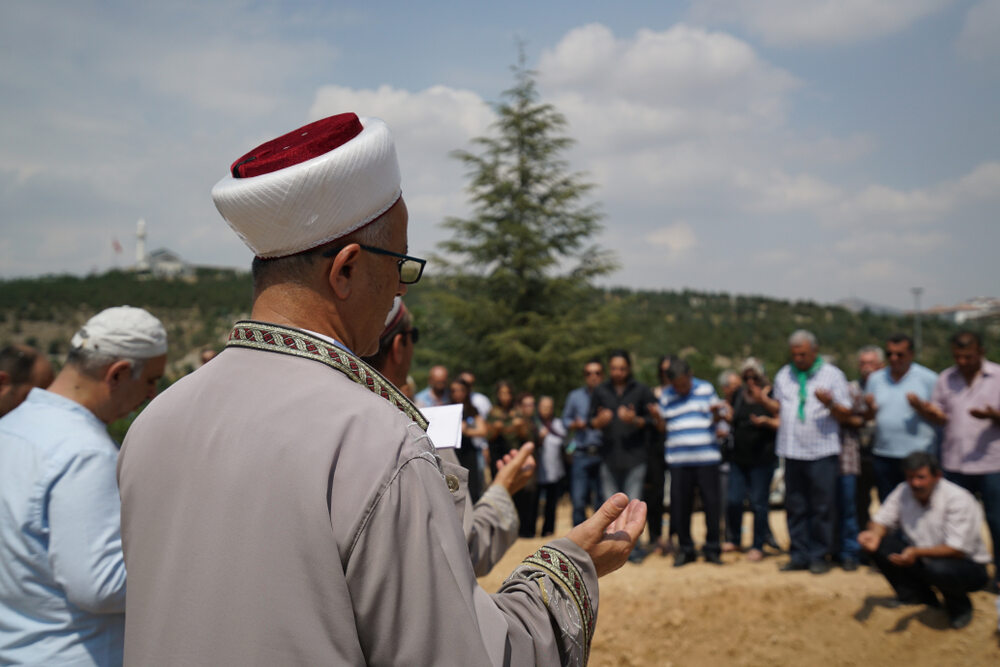Losing a loved one is one of life’s most difficult experiences. For Muslim families, navigating the religious requirements of a proper burial can add to the emotional weight of the moment. Islam offers a structured and dignified approach to funerals—known as Islamic Funeral Services or Janazah services—but many people aren’t sure where to begin when the time comes.
This guide walks you through every stage of arranging Islamic funeral services, ensuring that you fulfill your duties with love, respect, and according to Islamic tradition.
Step 1: Contact an Islamic Funeral Home Immediately
The first step after a loved one passes is to get in touch with one of the Islamic funeral homes in your area. These specialized providers understand the unique customs and religious requirements associated with a Muslim burial.
Islamic funeral homes offer:
- Timely response and transport of the deceased
- Access to trained staff for Ghusl (ritual washing)
- Guidance on paperwork and permits
- Appropriate caskets and shrouds for Islamic burial
If you’re unsure where to start, a quick search for Muslim funeral services near me can help you find a trusted provider in your community.
Step 2: Confirm Death and Obtain Legal Documents
Before any funeral arrangements can begin, you must officially confirm the death and obtain the necessary documents. This may involve coordination with a hospital, coroner, or healthcare provider.
You will typically need:
- A death certificate issued by a licensed authority
- A burial permit from the local registrar
- Identification documents of the deceased
Your chosen funeral home can often help with this process to ensure everything gets completed without unnecessary delay.
Step 3: Arrange the Ghusl (Ritual Washing)
Ghusl is the Islamic process of washing and purifying the deceased. It must have great care, modesty, and respect. Close family members of the same gender perform this act.
Key Aspects of Ghusl:
- The body is gently washed an odd number of times (usually three)
- Clean water is used
- Private parts get covered
- After Ghusl, the body gets dried and wrapped in a kafan (white shroud)
The goal is to prepare the deceased for meeting Allah in a state of purity, humility, and peace.
Step 4: Prepare the Kafan (Shroud)
Islamic tradition requires that the deceased be wrapped in a simple, white cotton shroud. The kafan varies slightly for men and women but always consists of plain, unstitched fabric.
Kafan Components:
- Men: Three pieces (izar, qamees, lifafah)
- Women: Five pieces (izar, qamees, khimar, chest wrap, lifafah)
This practice reflects Islamic values of modesty and equality in death.
Step 5: Perform the Janazah Prayer
Once the body is prepared, it is time for the Salat al-Janazah, or the Islamic funeral prayer. This collective prayer is held at the mosque, Islamic center, or even at a funeral home.
Key Features of the Janazah Prayer:
- No physical prostration (no ruku or sujood)
- Performed while standing in the congregation
- Composed of four takbirs (Allahu Akbar), with recitations in between
- Supplication for the deceased, the living, and all Muslims
The Janazah prayer is a communal obligation (fard kifayah). Maximum Muslims must attend it.
Step 6: Transport and Burial at a Muslim Cemetery
Following the prayer, the body is transported to a cemetery for burial. It is highly recommended that the deceased be buried in a Muslim-only section or a dedicated Islamic cemetery. The body should be placed in the grave on its right side, facing the Qiblah (direction of Makkah).
Burial steps include:
- Lowering the body into the grave with care
- Placing soil over the body by hand
- Reciting supplications and final duas at the gravesite
Unlike in some cultures, Islamic funerals avoid elaborate coffins or headstones. The focus remains on simplicity, humility, and submission to Allah’s will.
Step 7: Offer Condolences and Observe Mourning
After the burial, it is customary to offer condolences to the family and support them through their mourning period. Islam encourages compassion, community care, and prayers during this time.
Mourning Traditions:
- Close family members may observe mourning for up to three days
- Women who lose a husband observe iddah (mourning period) for four months and ten days
- Recitation of the Qur’an, especially Surah Yaseen, is common
Supporting the grieving family and praying for the deceased continues to earn rewards, long after the burial is complete.
Additional Considerations: Planning Ahead
While many families face these decisions during emotional times, some choose to pre-arrange Islamic funeral services for themselves or loved ones. This proactive step can ease the burden on family members and ensure all Islamic requirements are fulfilled.
Benefits of Pre-Planning:
- Lock in funeral costs at current rates
- Choose your preferred Islamic funeral home
- Ensure all religious get documentation
- Provide peace of mind for your family
If you’re considering this option, many funeral homes offer consultation services to walk you through the details.
Final Thoughts: Honoring Life through Faithful Farewell
Arranging Islamic funeral services is both a spiritual duty and a final act of love for the deceased. From Ghusl to Janazah and burial, each step has roots in compassion, purity, and obedience to Islamic teachings. With proper guidance and support, families can navigate the process with dignity and ease.
When the time comes, look for compassionate providers who understand the importance of Islamic tradition. Whether you’re searching for Muslim funeral services near me, seeking help with documentation, or choosing the right burial site, know that help is available to guide you through each moment.
The loss may be heavy, but fulfilling your duty following faith can offer comfort, closure, and the reassurance that you’ve honored your loved one in the best way possible.



